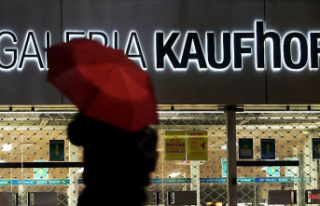A comprehensive protective shield should protect citizens and companies from high energy costs. For this, the government expects new debts of 200 billion euros. While the Treasury Department assures strict earmarking, many of the statements are too vague for the opposition.
In the Bundestag, the coalition initiated the legal framework for the gas price brake and other measures of the protective shield it was planning. "It's about building a bridge over the next two winters," said the parliamentary state secretary in the Ministry of Finance, Florian Toncar, during the first deliberation of the draft law in the Bundestag on the realignment of the economic stabilization fund, from which the defense shield is to be financed.
The government intends to take out 200 billion euros in new loans for this in the current year. Toncar emphasized that this new debt was "strictly earmarked". In addition to the gas price brake, the planned price brake for electricity should also be co-financed, as well as relief for companies and the stabilization of energy companies that got into trouble as a result of the crisis.
Toncar spoke of an "extraordinary emergency" for which Russia's leadership and its war of aggression against Ukraine were responsible. Moscow is concerned with destabilizing Western societies, for example by restricting gas supplies. "This strategy must not work," Toncar clarified. The goal of the federal government is to "avert damage to our country" with the defense shield.
"The Russian dictator Vladimir Putin is trying to use his gas to divide supporters of Ukraine," said Green budget expert Sven-Christian Kindler. "We will not allow that," he said. With the defense shield, the coalition wants to protect citizens in the crisis "from the worst effects". It's about helping people "who don't know how to pay their deductions," said SPD politician Frank Junge.
The CDU finance expert Mathias Middelberg welcomed the planned gas price brake and the associated price cap. However, he accused the traffic light coalition of launching it much too late. In addition, the government wants to "load its hamster cheeks with a stash of debt" with the new loans, without it being at all clear "on what the money is to be spent".
The AfD politician Peter Boehringer spoke in this context of only "vague hints" of planned relief programs. "We say no to this blank check," he clarified. The left housekeeper Gesine Lötzsch criticized a social imbalance in the defense screen. She referred to calculations according to which "people with a lot of money get four times as much as people with little money". In Germany, the richest ten percent of society uses as much energy as the poorest 40 percent. Lötzsch therefore pushed for stricter restrictions for the wealthy, for example through a ban on the use of "SUVs, sports cars and private jets in winter".












